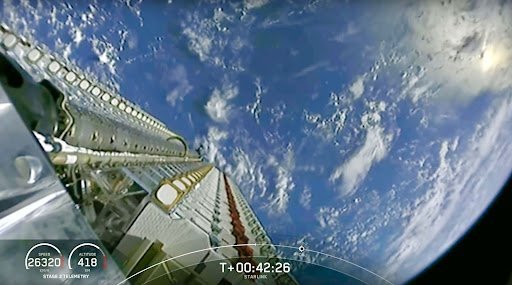Meta’s Quest to Bring Internet to the Global South
An internet cafe in Ethiopia in 2005 Photo: Charles Fred / Flickr
Though the modern world has become increasingly dependent on internet accessibility for important tasks, much of this world has also been left behind. The African continent, with 1.4 billion people, remains largely unconnected to the internet. With only 22 percent of people having internet connectivity, the majority of the continent remains isolated from the web. Recent years have seen improvements to connectivity, but Africa remains far behind in the global transition to the internet economy.
There have been a variety of philanthropic efforts to bring Africa online. Prominently, Meta (formerly Facebook) has partnered with a number of other tech companies. This effort started in 2013 with a white paper from Mark Zuckerberg on the creation of a project called ‘internet.org’, later changed to Free Basics. Meta projects in Africa include the creation of servers across Africa, fiber optic cables, and even solar powered drones. Recently, Meta has worked to expand an underseas cable to countries near the Indian Ocean, Angola and Nigeria.
The use of Facebook has become indispensable for millions across Africa in both business ventures and personal lives. With the continent largely reliant on mobile phones for internet access and with little disposable income to pay cell phone bills, the Free Basics internet provides a useful tool to individuals who would otherwise be isolated. Some argue that Free Basics can be a vital tool to increase educational opportunities to people across the developing world.
Overall, the role of internet access in economic growth has been well documented. By increasing the efficiency of marketing, increasing consumer choice, and supply chain management, internet access leads to accelerated growth. Economic opportunities brought by access to the internet lead to decreases in poverty, especially in the most under-resourced areas. Specific to Africa, internet access has been linked to a decrease in poverty of 7 percent in two years.
While providing a number of benefits, Meta’s efforts have been subject to criticism. Critics point out that the internet that Facebook provides is limited in many ways, including the substandard infrastructure, content, and education that are available on Facebook’s internet. Meta’s Free Basics provides access to only a limited amount of internet capabilities such as health and weather information, job ads, and Facebook’s application. Due to the lack of general internet capabilities outside Facebook, many have questioned the true motives behind the investments in Free Basics. In addition, some argue that having a centralized internet controlled by one company allows too much power to be concentrated in Meta’s hands.
Among the biggest setbacks to Meta’s internet expansion came in 2016 when Free Basics was banned in India. This ban came after a regulator ruled that the service violated net neutrality. Since 2016, Free Basics has been unable to make headway in India. Fortunately, India has seen rapidly increased internet access due to both public and private efforts.
SpaceX Starlink Broadband Satellite Deployment over Earth Photo: Steve Jurvetson / SpaceX
While Facebook’s efforts to expand internet access have been making progress, several other options are beginning to enter the market. Notably, SpaceX’s Starlink is set to enter the Africa market soon, offering options for areas that have not yet been reached by internet cables. Whether or not these new alternatives are preferred to Free Basics will depend on the ability for Meta and their competitors to provide value and navigate the complex regulatory regimes of the many countries trying to bring internet access to their citizens.


